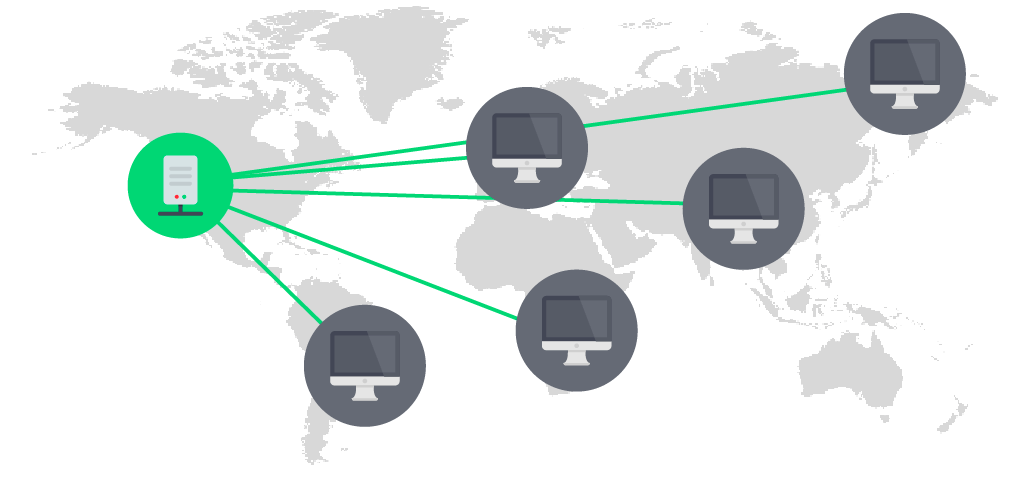How using multiple CDNS can benefit your business

Content Delivery Networks are the backbone of fast, quality internet browsing. There’s no turning back. Thousands of companies all around the globe just won’t be able to function the way they do now without the cloud delivery platform. And considering how the digital realm is expanding into even vaster space, the multi-CDN strategy is starting to be a solid solution for a lot of website owners, too. But for us to appreciate and understand how using multiple CDNs can be advantageous, let’s first discuss how working with only one CDN provider is beneficial.
In much earlier times, companies only partnered with one CDN provider to improve the web page loading speeds of their end-users. However they selected which provider to work with, the bottom line was that one was enough. Today, things are different. For humungous internet empires such as Youtube and Amazon, using multiple CDNs is normal. How has that become the norm?
How using multiple CDNs can help you
The truth behind the multi-CDN tactic is direct to the point. Not using a CDN at all is clearly out of the picture for many business leaders and website owners, but many artists and companies alike find that working with a lot of providers is often a CDN strategy that produces more engaging results. Different CDN providers extend different results. As an effect, gigantic corporations with huge a internet following rely on the multi-CDN strategy to make sure their content is consistently consumed by their international audience. Brand recall is everything today.
Distribution reach
This is perhaps the leading reason why many website owners choose to partner with a variety of CDN providers. When websites are frequented by most of the world, it can be tricky for only one CDN to distribute data. For instance, BelugaCDN has 28 global PoPs and 9 SuperPops. While that is already a decent number, some companies deem it best to still have their content cached and distributed in other CDN provider’s servers as well—to ensure that their website reaches each of their users in the entire face of the planet.
This is because some providers have great coverage in areas other providers are not present in. Some CDN companies may have superior reach in North America, but not in Asia. While some may have strong networks in Asia, but in Africa. In cases like these, the multi-CDN strategy works best.
Different specialties
Similar to doctors, CDN providers have different “fields of specialties” as well. But that’s not to say basic CDN services like SSL protection and caching are optional. Some are simply stronger in areas other providers aren’t. For example, provider A might be better at delivering live streaming content whereas provider B’s strength is delivering dynamic content and static optimization. In this particular case, if a website needs both features using multiple CDNs is the way to go.
Prices
As mentioned earlier, a lot of website owners no longer question whether or not using a CDN is important. The question now is which CDN provider do I get the most value from? It’s a given that rates will always be a make or break. And even though CDN providers are beginning to make services more affordable—which by the way, is what we’re most known for—there’s still a huge price gap between promising CDN providers and established ones. As a result, the pricing scheme per region may also be a huge factor.
For instance, provider A may have the best rates for the Asian region, but not for Europe. Meanwhile, the same thing can be said about provider C but for opposite regions and areas. In this scenario, going the multi-CDN route, is once again, the best CDN strategy.
Points of Presence Performance
A lot of CDN providers share the same effective Points of Presence (PoPs) because they’re all placed at Regional Internet Exchange locations such as London, Dallas, or Brisbane. Still, their performance can vary. Each PoP could have different network pipes resulting in different data center upstream. Because of that, data being delivered from CDNs in one geographical location could also differ in latency performance. Again, in this context, using multiple CDNs is a solid choice.
BelugaCDN is an economic CDN for simple and affordable global content delivery. What sets us apart, among other things, is that we’re the most budget-friendly CDN with easy monthly payments. You can cancel anytime, too. If you have questions you'
To get a free trial from us, click here.
Power-up your Content Delivery
30 Day Free Trial Cancel Anytime